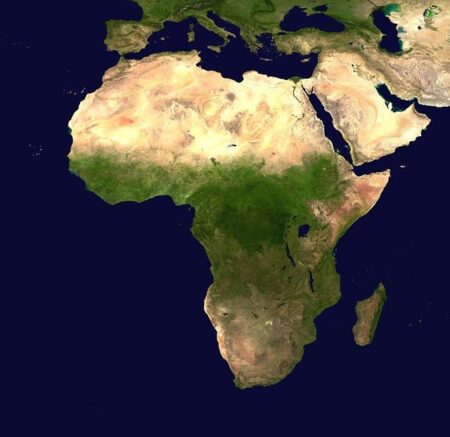In a significant move aimed at addressing growing tensions in the Sahel region, the African Union (AU) has appointed Burundi’s President ├ēvariste Ndayishimiye as its Special Envoy. This development comes amid escalating security challenges and political instability in several Sahelian countries, including Mali, Burkina Faso, and Niger. As the region grapples with the dual threats of armed insurgency and humanitarian crises, the AU’s decision underscores a renewed commitment to fostering peace and stability through diplomacy and regional cooperation. The appointment of Ndayishimiye, who has been actively engaged in regional and continental peace initiatives, signals a strategic step towards addressing the complex dynamics that have plagued the Sahel and could pave the way for collaborative efforts to restore order and confidence in the affected states.
AU’s Strategic Appointment of Burundi’s President Aims to Tackle Sahel’s Escalating Tensions
The African Union (AU) has made a significant move by appointing the President of Burundi as the Special Envoy to the Sahel region, a strategic decision aimed at addressing the escalating tensions that have gripped this crucial area. With the Sahel facing a complex web of challenges, including terrorism, political instability, and humanitarian crises, the AU sees this appointment as a means to leverage President ├ēvariste Ndayishimiye’s diplomatic experience and regional influence. His mission will focus on fostering dialogue among member states and enhancing cooperative security initiatives to stabilize the Sahel.
Key objectives of the Special Envoy’s appointment include:
- Strengthening Cooperation: Engage with regional leaders to enhance collaborative efforts against extremist threats.
- Promoting Dialogue: Facilitate discussions aimed at conflict resolution and reconciliation among affected communities.
- Implementing Humanitarian Strategies: Address urgent humanitarian needs exacerbated by ongoing unrest in the region.
| Challenge | Impact |
|---|---|
| Terrorism | Increased violence and insecurity |
| Political Instability | Hindered governance and economic development |
| Humanitarian Crisis | Displacement and food insecurity |
The AU’s commitment to the Sahel underscores its recognition of the region’s strategic importance to the wider continent. By empowering a leader with firsthand knowledge of regional dynamics, the AU aims to galvanize efforts and create pathways towards peace and stability, ensuring that the Sahel does not become a breeding ground for further unrest and violence.
Analyzing the Role of Leadership and Diplomacy in the African Union’s Sahel Initiative
The African Union’s recent appointment of Burundi’s President as a special envoy to the Sahel region signifies a strategic move towards addressing escalating tensions and humanitarian crises in this pivotal area. Leadership plays a critical role, as it not only influences the effectiveness of diplomatic engagements but also shapes regional stability. The complexities of the Sahel, marked by security challenges such as insurgencies, ethnic conflicts, and climate change effects, demand strong, visionary leadership capable of fostering collaboration among various stakeholders, including member states and international partners. Diplomacy, therefore, must be underpinned by a nuanced understanding of local dynamics, empowering leaders to facilitate dialogue and peace-building initiatives that resonate with the communities affected by these crises.
Through a combination of proactive engagement and multilateral cooperation, the African Union aims to leverage this new diplomatic appointment to revitalize the Sahel Initiative. Key elements of this approach include:
- Enhanced Communication: Establishing open channels among various factions and neighboring countries.
- Resource Mobilization: Attracting international support for development projects and crisis mitigation efforts.
- Crisis Response Framework: Building a robust mechanism for timely and effective intervention in times of conflict.
As the Sahel faces rising extremism and resource scarcity, the effectiveness of the African Union’s strategies will hinge on the interplay between decisive leadership and the ability to foster lasting diplomatic solutions, thus ensuring a more secure future for the region.
Recommendations for Enhancing Regional Cooperation and Stability in the Sahel Region
To foster a more stable Sahel region, it is vital for regional leaders and international partners to enhance their collaborative efforts. Strengthened dialogue among Sahelian countries can facilitate the sharing of intelligence and best practices in security, governance, and development. Building multinational task forces focused on countering terrorism and organized crime would not only bolster security but also promote trust among member states. Moreover, encouraging cross-border trade and economic cooperation can help address the underlying socio-economic issues that contribute to instability.
In addition to security measures, it is essential to invest in community-based conflict resolution mechanisms that empower local populations. Engaging civil society organizations and grassroots movements can lead to more sustainable peace efforts. Governments should also prioritize educational initiatives aimed at youth, providing them with the tools and opportunities to be active participants in their societies. By focusing on inclusive governance and regional economic integration, the Sahel can move towards a more secure and prosperous future.
Insights and Conclusions
In conclusion, the African Union’s decision to appoint Burundi’s President as a Special Envoy to the Sahel region underscores the growing urgency to address the escalating tensions and multifaceted challenges facing the area. As conflicts continue to threaten stability and security across the Sahel, the role of the Special Envoy will be crucial in facilitating dialogue and promoting collaborative efforts among member states. The AU’s proactive approach reflects a commitment to fostering peace and reconciliation in one of Africa’s most volatile regions. Observers will closely watch how the envoy’s initiatives unfold as the Sahel navigates its complex landscape of political unrest and security threats. As the situation develops, the international community must remain engaged and supportive of Africa-driven solutions that prioritize sustainable peace and development in the region.







